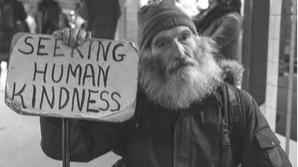
Some common responses are:
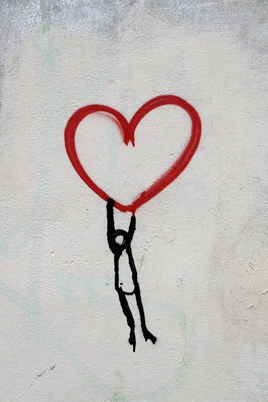
- -It's self-indulgent.
-It would be wrong have compassion for myself when so many people have a lot more severe problems.
-I don’t deserve it.
-I might become self-centred, lazy or stop doing things.
-I don’t want to have any compassion for people who have hurt me.
-People who have infringed on human rights don’t deserve compassion.
Fears and reservations like these are common. So it is good to know that there is no forcing in this course. You are never forced to be compassionate towards yourself or someone else if you’re not ready to do so.
However, compassion does start with learning to look kindly at your own experience. Like mindfulness training, it begins with where you are in the moment. I confess, I had mixed feelings about learning compassion practices for many years.
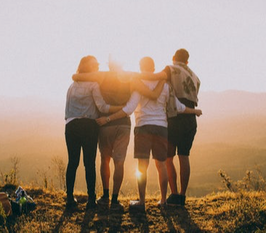
Compassion helps us survive.
We all get our share of pain and suffering in human life whether we want it or not. How much we get and how it is distributed is often random and may feel unfair. But we inevitable all suffer in this life. It's unavoidable.
Paul Gilbert the founder of Compassion Focussed Therapy says,
- "we all ended up in this life
- with a body, emotions and socially developed self
- that are not our choice but with which we have to manage
- in a life( full of losses, illness, ageing, death) unpredictable circumstances and dilemmas.
- The family, times, culture and unpleasant events that happen to us are not our choice. We don’t design our brains and our body, and much of what we experience is not our fault."
Most spiritual traditions regard compassion as a core value for the human race. Compassion involves mindfully acknowledging our experience of our suffering, with kindness, but also with the courage to face our pain and take responsibility for what we can choose, namely how we deal with it.
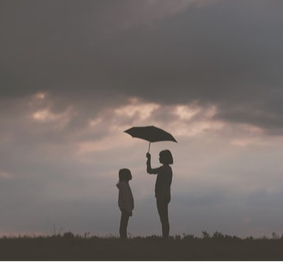
Compassion practice benefits our health, physically, mentally and socially.
Self-compassion has positive correlations with psychological strengths like happiness, optimism, wisdom, curiosity, personal initiative, emotional intelligence’s, social connectedness and have a negative correlation with self-criticism, depression, anxiety, ruminating, thought suppression and perfectionism.
Mindfulness, the ability to acknowledge our pain and suffering is a component of self-compassion. Two other elements of self-compassion are 'common humanity', the ability to see our suffering as part of a shared human condition, and 'self-kindness', the ability to offer kindness to ourselves when we suffer. If you have done an MBSR course, you have already begun to do this work.
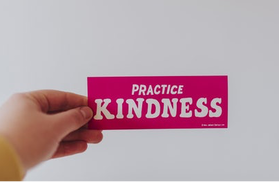
- -A high level of self-compassion is a better predictor of well-being than a high level of self-esteem. Self -esteem is associated with narcissism.
- -A caring attitude often proves to be more beneficial for our health than a competitive attitude
- -These are even more protective at times of adversity, and they help protect against depression and anxiety.
In MBSR we focus on using mindfulness to approach all that life offers and not to turn away reactively. We approach the pleasant and the unpleasant and we try to do this compassionately. When we have higher levels of self-compassion this is easier to do. Self-compassion is a natural remedy against experiential avoidance.It is helpful for your mindfulness practice.
Interested? I'll be posting more on self-compassion in the next few weeks but to get it, you need to experience it. The 8- week course was a developed as a follow-on from MBSR. Prior participants who have done the course have described it as the perfect fit, as making MBSR whole.
I'd love to see you there. The course begins Feb 14, and the early bird ends Jan 18. There's no discount for the 2nd or 3rd time as it is a smaller course than MBSR with limited numbers. Book now for the early bird discount. I'd love to see you there. More info www.headrest.com.au.

 RSS Feed
RSS Feed
